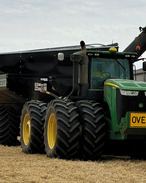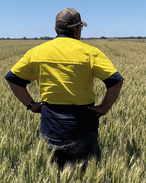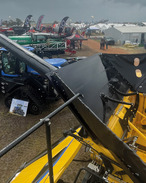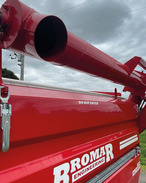Local Land Services in NSW is encouraging producers to continue closely monitoring sheep flocks and where possible, put management strategies in place to try and prevent internal parasites and flystrike.
Central West Local Land Services Mixed Farming officer, Matt Jones, said he understood it was a tough time for all producers experiencing flock issues on top of flooding.
"Talking with sheep producers around Nyngan, Trangie and Warren they are fighting a number of challenges at once," Jones said.
"The wet conditions are directly causing feet issues with sheep either walking through water or mud, which is not allowing the feet to dry out and creating lameness," he said.
"Large bodies of water and an abundance of green grass has created the perfect conditions for mosquito populations to explode."
North West local Land Services District Veterinarian, Dr Shaun Slattery, said many north-west sheep flocks are impacted by flystrike and barber's pole worm.
"Delays in shearing/crutching, chemical resistance and the need to avoid chemicals that will further delay shearing due to long wool harvest intervals are all challenging for fly strike management.
"Flocks that have already seen barber's pole cases are most at-risk as they now have heavy pasture larval contamination, Dr Slattery said.
"These will need increased management and drenching to prevent further deaths. Producers should contact their District Veterinarian or veterinary adviser to discuss on going management in these cases."
Riverina Local Land Services District Veterinarian, Dr Dione Howard, said their team had been working with landholders to diagnose lameness issues, discuss flystrike and worm prevention strategies and reduce the risk of metabolic disease associated with severe weather events.
"If producers have lame sheep the cause of lameness should be diagnosed to make sure the most effective treatment is used," Dr Howard said.
"Managing livestock in ongoing wet conditions is challenging and we encourage people to contact Local Land Services on 1300 795 299 to discuss sheep flock management."
For those in NSW facing severe flood impacts, he Agriculture and Animal Services Hotline provides emergency assistance to farmers impacted by the floods, including livestock assessment, veterinary advice, emergency fodder and assistance with euthanasia and burial.
Call 1800 814 647 between 8am and 6pm, seven days a week to register your need for assistance. Producers can also email aasfa@emergency.dpi.nsw.gov.au
























